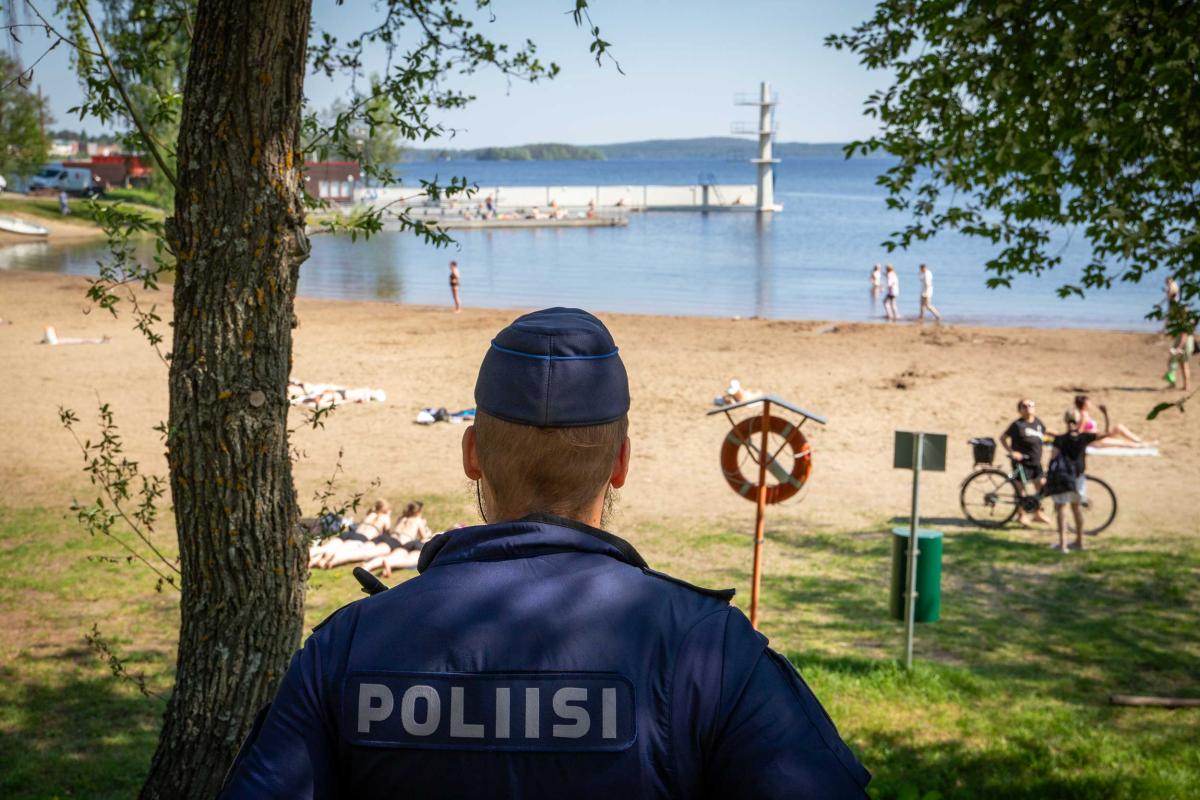- Poliisi
- fi
- Uutishuone
- Uutinen
Parents are responsible for taking care of their children at swimming areas

During the summer of 2025, the police have received several cases for investigation, in which a child who has gone into water has been in danger of death or died in the water. The police emphasise that it is the parents’ responsibility to take care of their children. Small children and especially children who cannot swim must be looked after constantly, and water safety equipment in accordance with the law must be provided, such as life jackets when boating.
Water poses a serious risk of drowning to children and especially to anyone who cannot swim. The warm weather in July attracts people to beaches and the water’s edge, which is why it is important to pay attention to water safety. The more people there are at the water’s edge, the greater the risk of accidents.
“When moving around on beaches and near water, parents have a responsibility to make sure that their children are safe and that their lives are not in danger. When moving on the water by any means, children must always wear a life jacket. On beaches, it is a good idea for children to wear a life vest, for example”, says Chief Superintendent Konsta Arvelin of the National Police Board.
Anne Hiltunen, Water Safety Specialist at the Finnish Swimming Teaching and Lifesaving Federation, also emphasises the responsibility of parents:
“Parents are still responsible for their children at the beaches, even though there are also lifeguards present. Parents must be within arm’s reach of their children at all times. A good rule of thumb is that a child playing in the water must be between an adult and the shoreline. Leave out any distractions that disturb this supervision and focus on the child instead.”
When you are with children at a swimming area:
- Supervise the children at all times, and also make an arrangement on which of the adults looks after the children at any given moment in time.
- Stay no more than an arm’s length from the children when you are supervising them.
- Position yourself so that the children play in water between you and the beach.
- Discuss the rules with the children: do not go to the waterline without an adult and never swim alone, always tell where you are going. Even a small child can learn the rules agreed together.
- Set a good example and a safety attitude – children learn from your model!
The neglect of obligation of supervision is a criminal offence
On average, there are 140 to 145 deaths by drowning in Finland every year. About half of these occur during the summer months, says Anne Hiltunen from the Finnish Swimming Teaching and Lifesaving Federation.
The police always investigate the cause of death in accidental deaths by drowning. If the incident involves suspicion of issues such as neglect of obligation of supervision, a criminal investigation will be conducted. The types of offences may include abandonment and negligent homicide.
Parents are responsible for their children. This responsibility may also be based on law, such as the Finnish Criminal Code and the Rescue Act. According to the Rescue Act, everyone shall be careful to avoid the risk of accident and the damage it causes.
Abandonment as a criminal offence is one example of a provision that defines the responsibility of an adult for the children that the adult supervises. According to the provision, a person shall be sentenced for abandonment if the person renders another person helpless or abandons a helpless person in respect of whom he or she has an obligation of care, and thereby endangers the life or health of the said person.
The characteristics of abandonment include both rendering another person helpless and being abandoned. This can take place actively or passively, and in some cases the latter can be considered, for example, if the person responsible for a child does not supervise the child at a swimming area. In other words, a person who has a special responsibility for a child, for example, may be guilty of abandonment if the child is rendered in a helpless state and consequently ends up in a concrete danger of personal injury.
Poor swimming skills and the foreign background of persons have been in the public eye recently. The police are not able to distinguish people with a foreign background statistically. However, the police have observed cases where persons with a foreign background have been involved in an incident on the water. In police statistics, nationalities other than Finland appear marginally in such cases.
The risk of drowning affects everyone, especially if the child is small, if they have poor swimming skills or if the person is intoxicated.
socialShareGray




